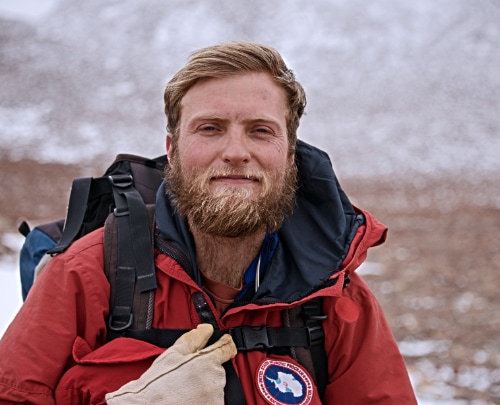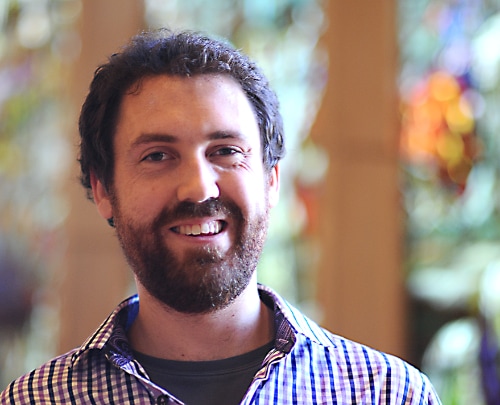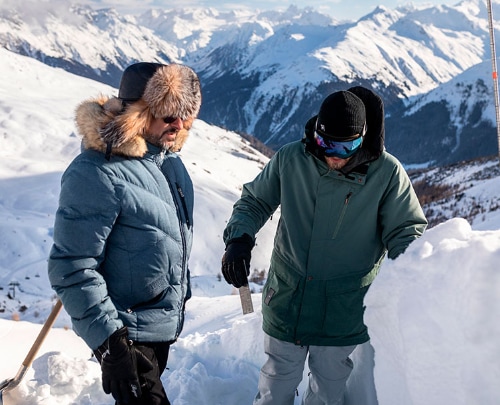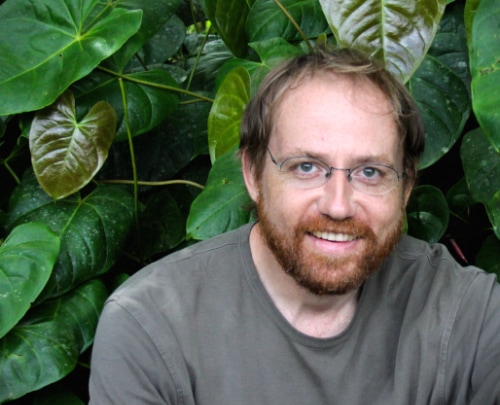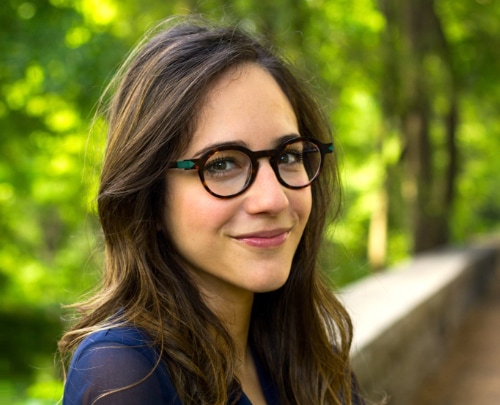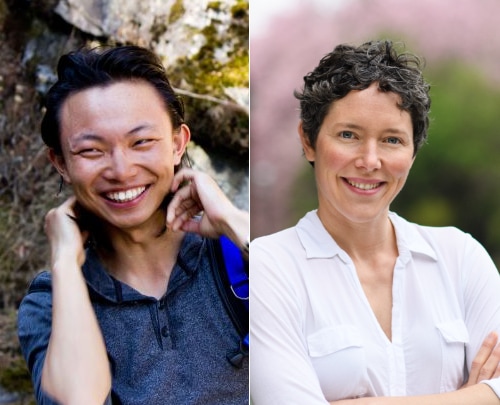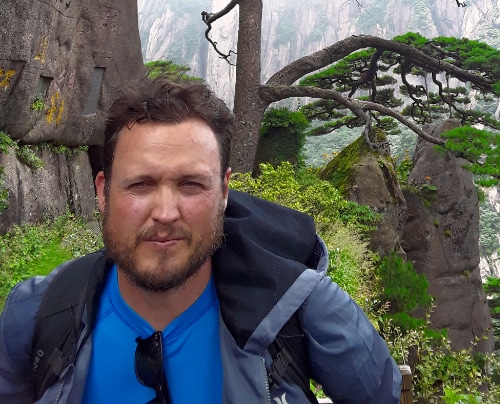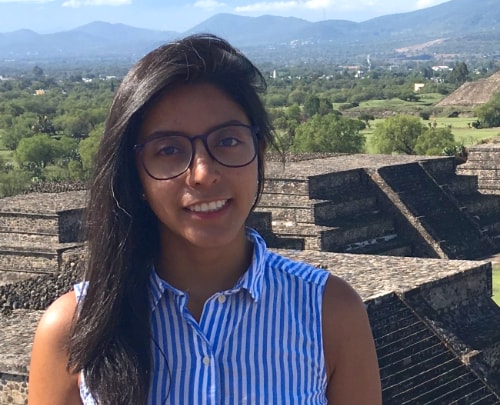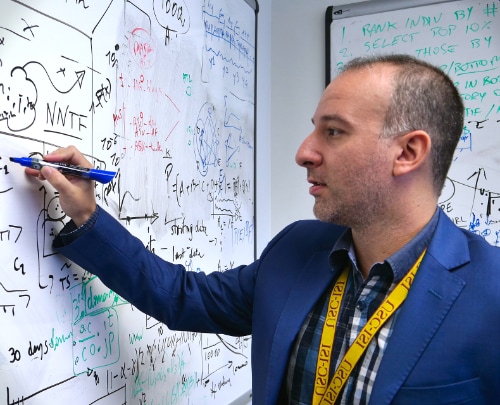How did a Cold War era debacle help us better understand the dangers of climate change? In episode 99 of Parsing Science, we talk with Drew Christ from the University of Vermont about his research into how fossils plucked from forgotten experiment in the Arctic led to his discovery the last time Greenland’s glaciers completely melted, it happened under climate […]
Author: Parsing Science
- Parsing Science
- Humanities, History
- Comments Off on Cold War Ice Core Reveals Historic Glacial Melt – Andrew Christ
- Parsing Science
- Anthropology, Archaeology, Humanities, History
- Comments Off on DNA Evidence of Denisovan Interbreeding – João Teixeira
What can DNA tell us about the migration of the earliest modern humans and other hominins? In episode 98 of Parsing Science, we talk with João Teixeira from the University of Adelaide about his research which examined the genomes of modern humans to investigate the interbreeding between ancient humans and modern human populations who arrived in Southeast Asia around 60,000 years […]
- Parsing Science
- Applied Sciences, Physics, Engineering, Humanities, Natural Sciences, History
- Comments Off on The Dyatlov Pass Incident – Alexander Puzrin
Can science help solve a real-life mystery? In episode 97 of Parsing Science, we talk with Alexander Puzrin from ETH Zurich about his research into The Dyatlov Pass incident, a 62-year-old mystery involving the deaths of nine hikers in the freezing Russian wilderness, a tragedy that’s been attributed to everything from a yeti to military weapons testing and an avalanche. […]
- Parsing Science
- Biology, Natural Sciences, Social Sciences, Sociology
- Comments Off on Monkey Business – Jean-Baptiste “JB” Leca
Do monkeys know how much fruit your sunglasses are worth? In episode 96 of Parsing Science, we talk with Jean-Baptiste “JB” Leca from the University of Lethbridge’s Department of Psychology about his field research observing interactions among macaques at a Hindu temple in Bali. There, the monkeys have learned to rob tourists of everything from smartphones to flip flops, and […]
- Parsing Science
- Social Sciences, Uncategorized, Communications, Psychology, Sociology
- Comments Off on Positively Negative – Shiri Melumad
How much can you trust people’s retelling of information the’ve read? In episode 95, Shiri Melumad from the University of Pennsylvania’s Wharton School of Business discusses her research showing that when – much like the children’s game “telephone” – news is repeatedly retold, it undergoes a stylistic transformation through which the original facts are increasingly replaced by opinions and interpretations, […]
- Parsing Science
- Biology, Natural Sciences
- Comments Off on How Mosquitoes Target Us – Zhilei Zhao & Lindy McBride
Why do mosquitoes prefer us over other animals? In episode 94, we talk with Zhilei Zhao and Lindy McBride from Princeton about their research into how mosquitoes that can carry dangerous diseases – such as Zika, dengue https://www.team-medic.com, West Nile virus and malaria – are able to track us down so quickly while ignoring other warm-blooded animals; an ability they’ve developed […]
- Parsing Science
- Social Sciences, Psychology
- Comments Off on Epistemic Puzzles in ‘The Witness’ – Luke Cuddy
What can a video game teach us about our epistemic philosophy? In episode 93, Luke Cuddy from Southwestern College’s philosophy program talks with us about the video game The Witness, which presents players with a multitude of increasingly sophisticated and frustrating puzzles that perhaps result from the theory of knowledge it reflects. His chapter “The Witness as Philosophy: How Knowledge […]
- Parsing Science
- Law, Social Sciences, Sociology
- Comments Off on Unintended Consequences of Legal Reforms – Ángela Zorro Medina
What effect did copying the U.S.’s legal system have on Colombia’s incarceration system? In episode 92, Ángela Zorro Medina from the University of Chicago discussed her research into how transitioning to an adversarial model of criminal procedure – one controlled by the prosecutor and defense, rather than by the judge and court – impacted the number of inmates detained before […]
- Parsing Science
- Computer Science, Formal Sciences, Political Science, Social Sciences
- Comments Off on Bots’ Meddling in the 2020 Presidential Election – Emilio Ferrara
How are automated social media bots manipulating our political discourse? In episode 91, Emilio Ferrara from the University of Southern California discusses his research into bots’ amplification of conspiracies theories across more than 240 million tweets regarding the 2020 U.S. presidential election. His open-access article “Characterizing social media manipulation in the 2020 U.S. presidential election,” was published in with Herbert […]

